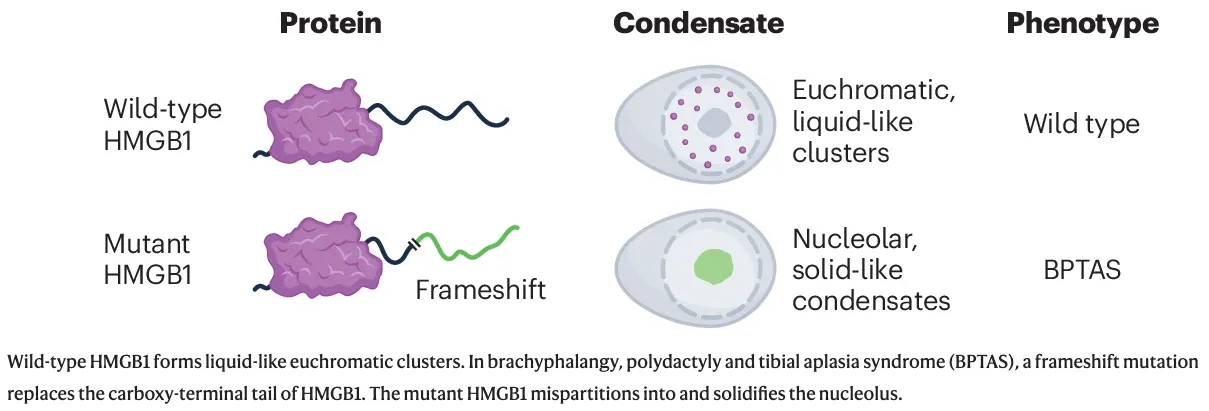Testing the relationship between condensate formation and function in cells is challenging. In particular, the extent to which the cellular functions of condensates depend on the nature of the molecular interactions through which the condensates form is a major outstanding question.
This recent review discusses genetic complementation experiments in cells, and highlights how genetic complementation provides important insights into cellular functions and functional specificity of biomolecular condensates. Combined with observations from human genetic disease, these experiments suggest that diverse condensate-promoting regions within cellular proteins confer different condensate compositions, biophysical properties and functions.

